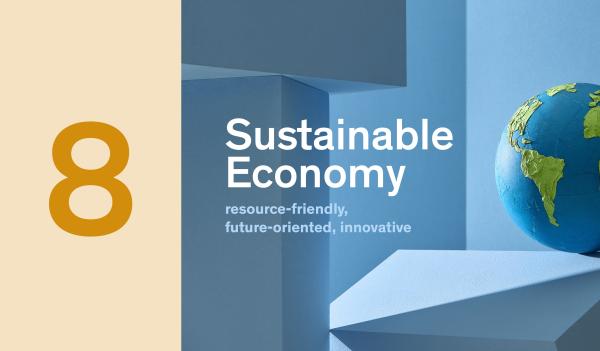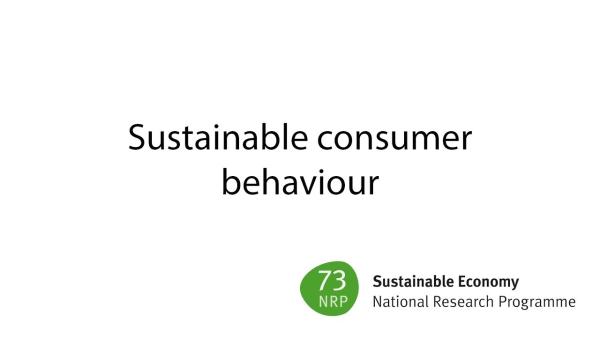Sustainable consumer behaviour
Do consumers who reduce their hot water usage also reduce their heat consumption? Will consumers who are incentivised to decrease the use of their cars adopt more sustainable behaviours in other domains? In this project we investigated whether increased sustainability in terms of a particular resource use, enhances or impedes individuals’ sustainability in other areas.

Background
A variety of economic and psychological interventions aims at encouraging sustainable resource use. The impact of such interventions has essentially been evaluated in isolation, without taking into account impacts in areas not directly targeted. Such side effects are referred to as spillovers. They can be positive (more sustainable behaviour in not directly targeted areas of natural resource use), negative (more unsustainable behaviour in other areas) or neutral.
Aims
In this project, we aimed at answering three main questions:
· Which interventions foster positive spillovers or prevent negative spillovers?
· Which factors explain the existence, direction and intensity of spillovers?
· Which areas of natural resource use are prone to spillovers?
Results
Analysis of sustainable consumer behaviour in various settings
We conducted field, laboratory and survey experiments in a variety of settings in Switzerland and Singapore. We observed consumer behaviour within household settings, hotel rooms, student dormitories, stores and in the lab, as well as with regard to mobility. We implemented a wide range of interventions to foster sustainable consumption behaviour among individuals: feedback on their consumption, conservation tips, goal setting, social comparison, monetary and environmental incentives, sustainability labels, social identity and social norm messages, moral appeal, as well as choice defaults or competition.
Sustainable behaviour connected and susceptible to spillover effects
Irrespective of the type of intervention, our studies did not reveal evidence of interventions causing negative spillovers in the aggregate. Positive spillover effects were observed for some interventions and in some areas. For instance, in a field experiment including 782 apartment buildings in Switzerland, we observed that in addition to hot water savings, cold water usage and room heating were persistently reduced. In another field experiment, we found that running a competition with a monetary prize reduced the participants’ electricity consumption as well as their water consumption. Non-pecuniary interventions were able to make target behaviours more sustainable, but as a rule were not strong enough to cause positive spillover effects. Environmental identities of individuals as well as the perceived relatedness of environmental areas seem to be strong drivers for causing positive spillovers. Also preventing individuals from considering different opportunities to behave pro-socially as substitutes matters, for instance through giving them multiple options for pro-social behaviour over time.
Evidence from initial exploratory surveys as well as from subsequent in-depth studies suggests that electricity, water and heating energy consumption are strongly connected and susceptible to spillover effects. Mobility behaviour, on the other hand hand, seems unrelated to other environment-related behaviours.
Implication for research
Our project contributes to the literature on behavioural spillovers related to natural resource use. Our analyses, covering a broad variety of resource use areas as well as interventions show that there is hardly any empirical foundation for negative spillovers. This clear result has high relevance given the methodological rigour of our studies. We essentially relied on data about people’s actual behaviour (as opposed to self-reports).
Implication for practice
The absence of negative spillovers is important for policy interventions aimed at triggering a sustainable use of natural resources. Contrary to previous assumptions, interventions to motivate people to adopt pro-social behaviours do not necessarily result in negative spillover effects. Activating individuals’ self-image as an environmentally friendly person seems to enhance positive spillovers. Perceived closeness of domains, low efforts of behavioural changes and information about behavioural effects help in this activation.
Publications
Direction du project
Prof. Dr. Renate Schubert
Institut für Umweltentscheidungen, ETH Zürich





